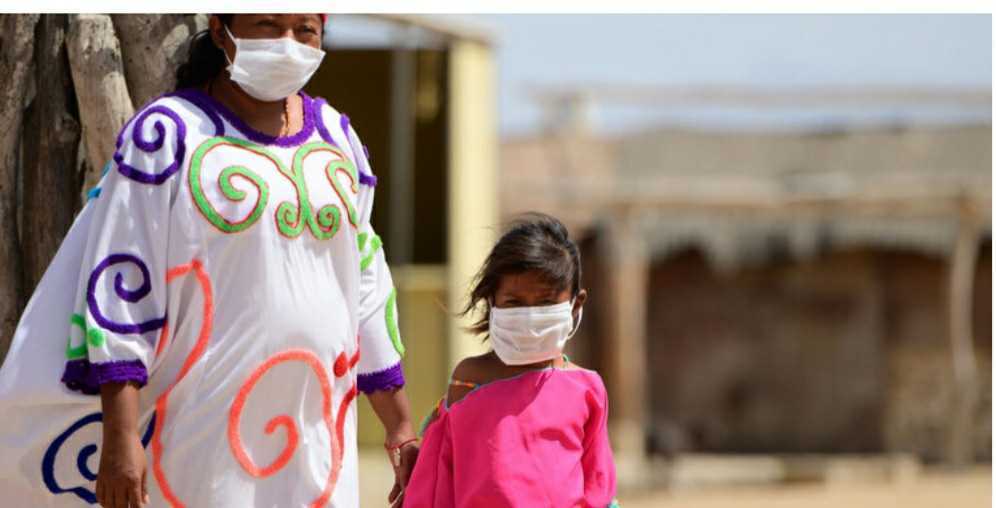
Friday, 30 October 2020 | Bridgetown, Barbados – The fifth observance of CARICOM Energy Month (CEM) will be launched on 2 November under the theme ‘A RE-silient Community: Energy at the Centre’.
Each November, the spotlight is placed on energy as part of efforts to raise awareness of what is occurring in the region as well as to increase general knowledge about the sector. The CARICOM Secretariat, the Caribbean Centre for Renewable Energy and Energy Efficiency (CCREEE), along with the European Union and the German Federal Ministry of Economic Development and Cooperation (BMZ) – funded by the Technical Assistance Programme for Sustainable Energy in the Caribbean (TAPSEC) – are partnering to organise the activities at the regional level. There also will be activities in Member States to mark the month.
The launch, which begins at 10 a.m. on 2 November, will take the form of a Virtual Panel Discussion with energy and finance experts, policy-makers, and persons who have been at the forefront of energy in the region, as well as an interactive session with the public. On the panel will be Dr. Devon Gardner, Energy Programme Manager at the CARICOM Secretariat; Ms. Kim Griffith Tang-How, Director, Customer Solutions, Barbados Light and Power Company; Ms Angella Rainford, CEO and Founder of Soleco and Rekamniar Frontier Ventures, and Professor, Chandrabhan Sharma, Professor, Department of Electrical and Computer Engineering at the University of the West Indies, St. Augustine Campus. The host will be Ms. Davia Chambers. To register to attend the launch, please follow the link https://rb.gy/x5ygc3. Representatives of the media will also have an opportunity to pose questions at the conclusion of the discussion.
The COVID-19 pandemic has shifted the observances this year to virtual platforms except for a staple – the Caribbean Sustainable Energy Forum (CSEF) – which has been pushed back to next year. Speaking to the theme of this year’s observance, Dr Devon Gardner noted that, “the idea that renewable energy can help us to achieve better sustainable development is one that is important and is one that we are promoting. We are re-imagining the resilient pieces of our lives with energy at the center of it, because resilience is important to us. As small island developing states we are amongst the most vulnerable to climate change matters and climate change has admittedly been identified as the single biggest threat to human existence in the world today.”
Likewise, the CCREEE Executive Director, Dr Gary Jackson surmised resilience is our only option. He said, “our community – the Caribbean Community – must plan, build and implement resiliently if we are to secure livelihoods for future generations and so, the CCREEE is particularly pleased with the inclusion of youth in these important energy discussions.” In recognition of the critical role of youth in developing energy policies and driving the transformation, one of the key activities this year is a youth roundtable on the future of energy. Young people in the region will share their vision for the energy sector with institutional and thought leaders to identify and build consensus on priority areas to be pursued.
There will also be a four-day dialogue series during the third week of November that will focus on topics such as the electrification of the transportation sector; marine energy; resilience-based planning and cross-cutting issues.
Another feature of the month is identifying and showcasing two ‘energy personalities’ each week. The personalities will have made significant contributions to the energy sector in the region and gives voice to their advancements whether through academia, the public or private sector, civil society, or youth. In the view of Simon Zellner – TAPSEC’s Programme Manager – the energy personality feature is an exciting addition. “The energy personalities series shall connect the visions and ambitions of different actors in growing and sustaining the emerging renewable energy sector across the Caribbean. It will tell us great individual stories. There are already so many good examples of progress towards a resilient and sustainable energy sector available in the region, which we’d like to spread amongst the CARICOM energy community”, Mr Zellner said. He added, “GIZ values our strong collaborative relationship with the key players in the energy sectors of the Caribbean Community (CARICOM) as we work to support the already ongoing efforts for a climate resilient and sustainable energy future. We are pleased to be part of this year’s largely virtual organized CARICOM Energy Month.”
While these are the featured events of CARICOM Energy Month this year, several other training and outreach activities will be undertaken, including webinars, solar cooling and electric mobility training seminars and, an integrated communications campaign, highlighting energy’s role at the center of our community.
About CARICOM Energy
CARICOM Energy was commissioned in 2008 under the Directorate of Trade and Economic Integration to coordinate the finalization of the regional energy policy and provide strategic management for a programmatic approach to the region’s energy issues.
The Caribbean Sustainable Energy Roadmap and Strategy (C-SERMS) was designed by CARICOM Energy to build on existing efforts in the Region and to provide CARICOM Member States with a coherent strategy for transitioning to sustainable energy. CARICOM Energy is managed by the CARICOM Secretariat, with implementation coordinated by the CCREEE.
About The CCREEE
The Caribbean Centre for Renewable Energy and Energy Efficiency (CCREEE) is a specialized institution of the Caribbean Community (CARICOM). Established within the framework of the Global Network of Regional Sustainable Energy Centres (GN-SEC), the CCREEE is the implementation hub for sustainable energy activities and projects within the CARICOM region.
ABOUT TAPSEC
The Technical Assistance Programme for Sustainable Energy in the Caribbean (TAPSEC) supports the region’s transition to a low-carbon, sustainable and climate-compatible development pathway by increasing and improving access to modern, affordable and sustainable energy services, to the benefit of all Caribbean citizens, especially those who are most disproportionately affected by a lack of access to energy.
To achieve this mission, through multi-stakeholder partnerships, the TAPSEC team leads the implementation of Policy, Information and Capacity Development, and Finance interventions towards the implementation of the CARICOM Energy Policy (CEP), the Caribbean Sustainable Energy Roadmap and Strategy (C-SERMS), and the various national energy policies and strategies of Caribbean states.
The TAPSEC is implemented by the Deutsche Gesellschaft für Internationale Zusammenarbeit (GIZ) GmbH and made possible through the financial support of the European Union (EU) under the 11th European Development Fund (EDF-11), with an additional financial allocation from the German Federal Ministry of Economic Cooperation and Development.
The TAPSEC is implemented in collaboration with the Caribbean Community (CARICOM) Secretariat and the Ministry of Energy and Mines (MEM) of the Dominican Republic.




